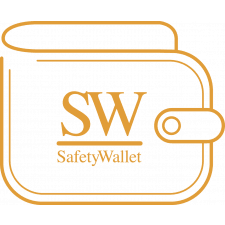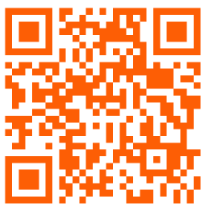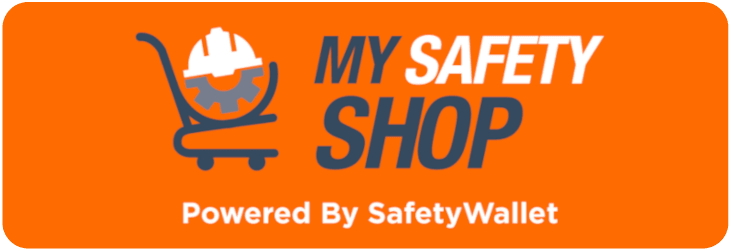Industry-Specific Risk Assessments: Tailoring Your Approach
In South Africa, the importance of risk assessments cannot be overstated. They are essential for identifying potential hazards and implementing measures to mitigate risks. However, a one-size-fits-all approach to risk assessments can lead to significant oversights, particularly when different industries have unique challenges and requirements. This blog explores the reasoning behind using industry-specific risk assessments, the drawbacks of general blanket assessments, and the advantages of tailoring your approach. Since MAKROSAFE is a proud Authorised Dealership of SafetyWallet, we will discuss how SafetyWallet, Walli, and OHS Online can assist in this vital process.
The Importance of Industry-Specific Risk Assessments
Every industry has its own set of risks and challenges. For instance, the construction sector faces hazards related to heavy machinery, falls from heights, and exposure to hazardous substances. In contrast, the healthcare industry must contend with biological hazards, infection control, and patient safety. By conducting industry-specific risk assessments, organisations can ensure that they are addressing the unique risks pertinent to their operations. This tailored approach not only enhances safety but also fosters a culture of compliance and accountability.
Drawbacks of General Blanket Risk Assessments
While general risk assessments may seem convenient, they often fail to capture the nuances of specific industries. Here are some key drawbacks:
Oversimplification of Risks: General assessments may overlook critical hazards unique to a particular industry. For example, a blanket assessment may not adequately address the specific risks associated with working at heights in construction or the biohazards present in healthcare settings.
Inadequate Control Measures: Without a thorough understanding of industry-specific risks, the control measures implemented may be insufficient. This can lead to increased incidents, injuries, and even fatalities.
Regulatory Non-Compliance: Different industries are governed by various regulations and standards. A general risk assessment may not align with the specific legal requirements of an industry, resulting in non-compliance and potential legal repercussions.
Employee Disengagement: When employees perceive risk assessments as irrelevant or generic, they may become disengaged from safety protocols. This can lead to a culture of complacency, where safety is not prioritised.
Pressed for time? Why not listen to a recent Podcast about this Blog and then decide? Just click on the image below.
Advantages of Industry-Specific Risk Assessments
Tailoring risk assessments to specific industries offers numerous advantages:
Enhanced Accuracy: Industry-specific assessments provide a more accurate picture of the risks present in a particular environment. This allows organisations to identify and address hazards effectively.
Targeted Control Measures: By understanding the unique risks associated with their industry, organisations can implement targeted control measures that are more likely to be effective. For example, a construction company may focus on fall protection systems, while a healthcare facility may prioritise infection control protocols.
Improved Compliance: Industry-specific risk assessments ensure that organisations meet the regulatory requirements relevant to their sector. This not only reduces the risk of legal issues but also enhances the organisation's reputation.
Increased Employee Engagement: When employees see that risk assessments are tailored to their specific work environment, they are more likely to engage with safety protocols. This fosters a culture of safety and accountability.
Better Resource Allocation: Tailored assessments allow organisations to allocate resources more effectively. By identifying the most significant risks, organisations can focus their efforts and investments where they are needed most.
Examples of Industry-Specific Risk Assessments
To illustrate how risk assessments can differ from industry to industry, consider the following examples:
Construction Industry: A risk assessment in construction may focus on hazards such as falls from heights, equipment-related injuries, and exposure to hazardous materials like asbestos. Control measures might include the use of personal protective equipment (PPE), scaffolding safety protocols, and regular safety training.
Healthcare Industry: In healthcare, a risk assessment would prioritise biological hazards, patient handling, and infection control. Control measures could include proper sanitation procedures, training on handling infectious materials, and protocols for reporting incidents.
Manufacturing Industry: A manufacturing risk assessment might address machinery safety, chemical exposure, and ergonomic risks. Control measures could involve machine guarding, proper ventilation systems, and ergonomic training for employees.
Hospitality Industry: In hospitality, risk assessments may focus on slips, trips, and falls, food safety, and fire hazards. Control measures could include regular safety inspections, food handling training, and fire evacuation drills.
How SafetyWallet, Walli, and OHS Online Can Assist
Since MAKROSAFE is a proud Authorised Dealership of SafetyWallet, SafetyWallet is dedicated to providing organisations with the tools and resources they need to conduct effective industry-specific risk assessments. With the support of Walli, the AI assistant, and the comprehensive capabilities of OHS Online, SafetyWallet offers a robust platform that streamlines the risk assessment process.
Customised Risk Assessment Tools: SafetyWallet provides tailored risk assessment templates that cater to various industries. This ensures that organisations can easily identify and address the specific risks relevant to their operations.
OHS Online Platform: OHS Online is a cloud-based health and safety management system that allows organisations to manage their risk assessments efficiently. It offers over 3000 tasks with detailed risk assessment templates, ensuring that users can find the right tools for their specific industry needs.
Ongoing Support and Guidance: Walli is available 24/7 to assist organisations in navigating the complexities of risk assessments. Whether it's answering questions or providing guidance on best practices, Walli ensures that organisations have the support they need.
Training and Resources: SafetyWallet offers training programmes that equip employees with the knowledge and skills necessary to conduct effective risk assessments. This empowers organisations to take ownership of their safety practices.
Compliance Tracking: The OHS Online platform allows organisations to monitor their compliance with industry regulations and standards. This ensures that they remain up-to-date with the latest requirements and best practices.
Continuous Improvement: SafetyWallet encourages a culture of continuous improvement by providing tools for regular reviews and updates of risk assessments. This ensures that organisations can adapt to changing circumstances and maintain a high standard of safety.
Industry-specific risk assessments are essential for ensuring the safety and well-being of employees across various sectors. By tailoring assessments to the unique challenges of each industry, organisations can enhance accuracy, improve compliance, and foster a culture of safety. MAKROSAFE, SafetyWallet, Walli, and OHS Online provide invaluable support in this process, offering customised tools, ongoing guidance, and resources to help organisations navigate the complexities of risk assessments. By prioritising industry-specific approaches, organisations can create safer work environments and ultimately achieve better outcomes for their employees and stakeholders.
Not using Walli yet? Scan the below QR Code to gain access
Elevate Your Health and Safety Management
Embrace our Triple P approach and transform your workplace into a haven of safety and productivity.
The SafetyWallet Triple P Health and Safety Management System is available at no cost to all SafetyWallet subscribers, and supported by MAKROSAFE ( an Authorised Dealership of SafetyWallet) team members. This means you are able to get a state-of-the-art system with operational support for your entity thereby improving the health and safety in the workplace as well as improving your legal compliance to Occupational Health and Safety Legislation.
Click on the image below to find a SafetyWallet Solution that suits your business (Branch/Site specific) and get the benefits along with the subscription:
To find out what other Additional Services we offer, please click on the picture below:
SAFETYWALLET In Co-operation with MAKROSAFE and MY SAFETY SHOP
Disclaimer:
Walli can make mistakes. Consider checking important information and please speak to SafetyWallet's support team, should you be in doubt. Please also see: https://www.safetywallet.co.za/termsandconditions








Comments (1)
May there be an example of Physical Security Risk Assessment (Guarding and Access Control)
2024-12-10 11:06:15